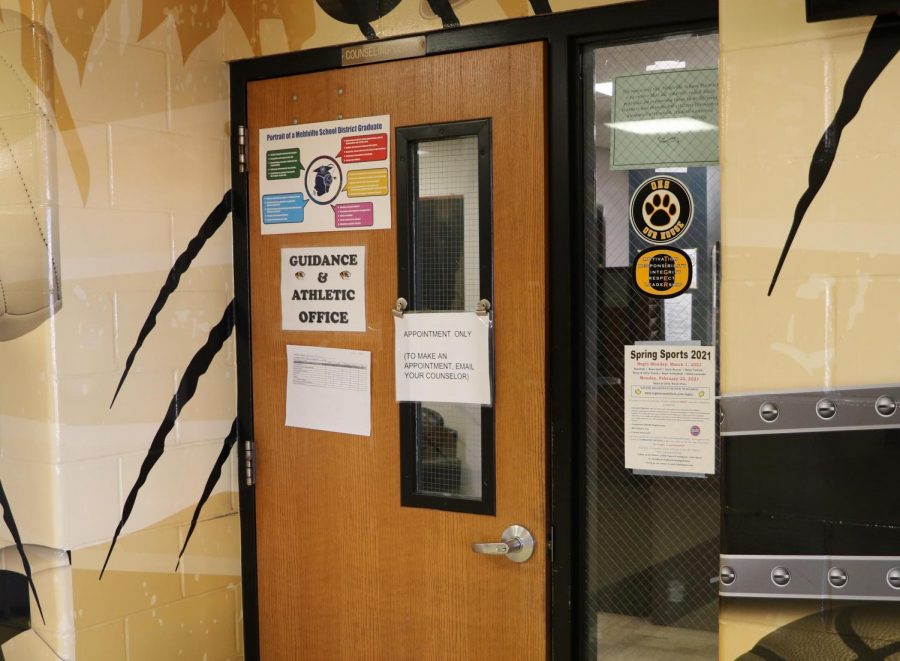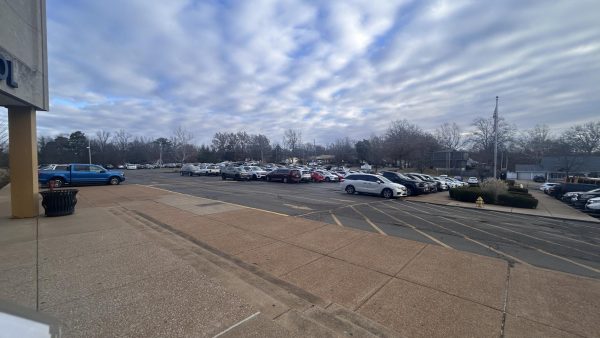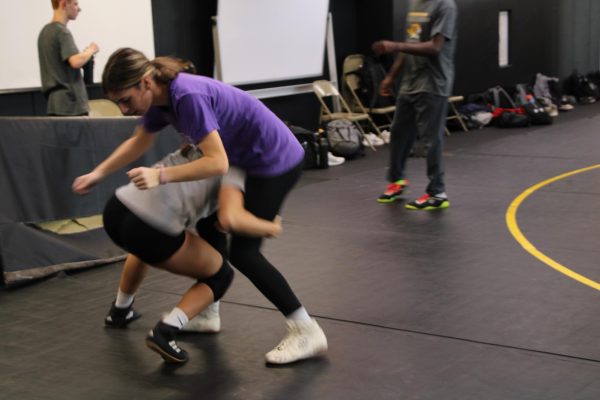Schools need to provide more mental health care
Many students have been into the guidance office this year with increased need for mental health help.
As the world engages in a fearful fight against coronavirus and other problems that plague society today, the precarious state of students’ mental health around the nation is steadily declining.
Some may argue that the St. Louis community and schools are already involved with their students and have provided help, but at a time where declining mental health has never been a greater issue, the community needs to do more. The absence of going to school every day and having a normal and predictable schedule has caused lots of students to struggle with their mental health and the extensive work teachers place on them. School has become a burden, and staying home all day has no appeal when students cannot engage with friends, play sports, or ask for help without limitations and restrictions.
For many students, the solution from relieving themselves of their declining mental health is to resort to self-harm and suicide. At Lafayette and Marquette high schools, there have been as many as four suicides in the last year-and-a-half. These numbers inspired students to approach the Rockwood School Board to demand change to the approach of mental health.
The Rockwood School District is not the only St. Louis district that is struggling. Many students all over the city are fighting for more prominent mental health resources to be available to students. They want resources easier to find, and to take away the stigma from mental health discussions.
When students show signs of trouble or struggle, one of the first solutions should be to talk to the students and provide virtual peer support groups. Support groups could have virtual meetings during school hours at either ANP or after school, whenever the students have time and feel comfortable. With the comfort and familiarity of support groups, students have more of a chance to feel comfortable opening up and expressing what plagues them. When students share what troubles them, teachers and other trusted adults have a better chance of fixing or improving situations.
In order to further educate and support students, the community should locate speakers in the local area who have expertise in mental health and are comfortable with sharing their experiences. The speaker would join a Google Meet that would be held as a virtual discussion during ANP, making it an option for students to engage. Mental health speakers help initiate those important, but often difficult, discussions around a topic that affects us all. This will be more difficult to achieve virtually, but we can create an environment where the students feel comfortable enough to turn their mics on and share.
Counselors and teachers work to help students grow and mature to create a life outside of what they are comfortable with, and to make sure they continue their journeys in a positive and healthy manner. Mental health is something everyone deals with and it’s important to understand there’s a wide range of perspectives on the subject. From those suffering from a mental illness to those who have been affected by another’s actions, there’s not just a one-size-fits-all when it comes to mental health discussions. It is of the utmost importance to let these students know that we are on their side and we want to help, especially when life today is difficult and many have been affected mentally, socially, and physically.
Mental health support groups, local speakers who have experience and expertise in mental health, and more awareness of self-harm and suicide are solutions that the Mehlville School District should focus on. These ideas should be passed to district administration and the school leadership team to pursue more mental health help for students.

Hi everybody! My name is Leyla Vilic, and I am a senior this year. I love to read all types of books, but especially fantasy, thriller and historical fiction....







